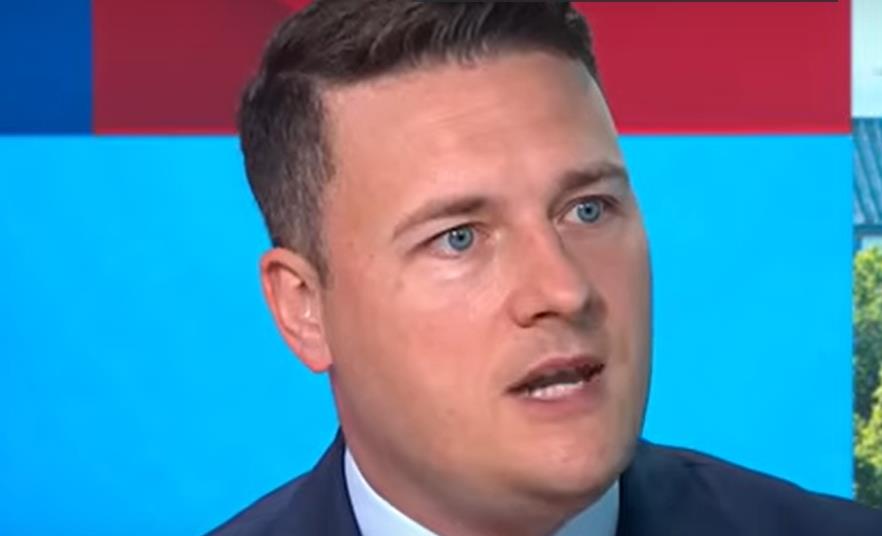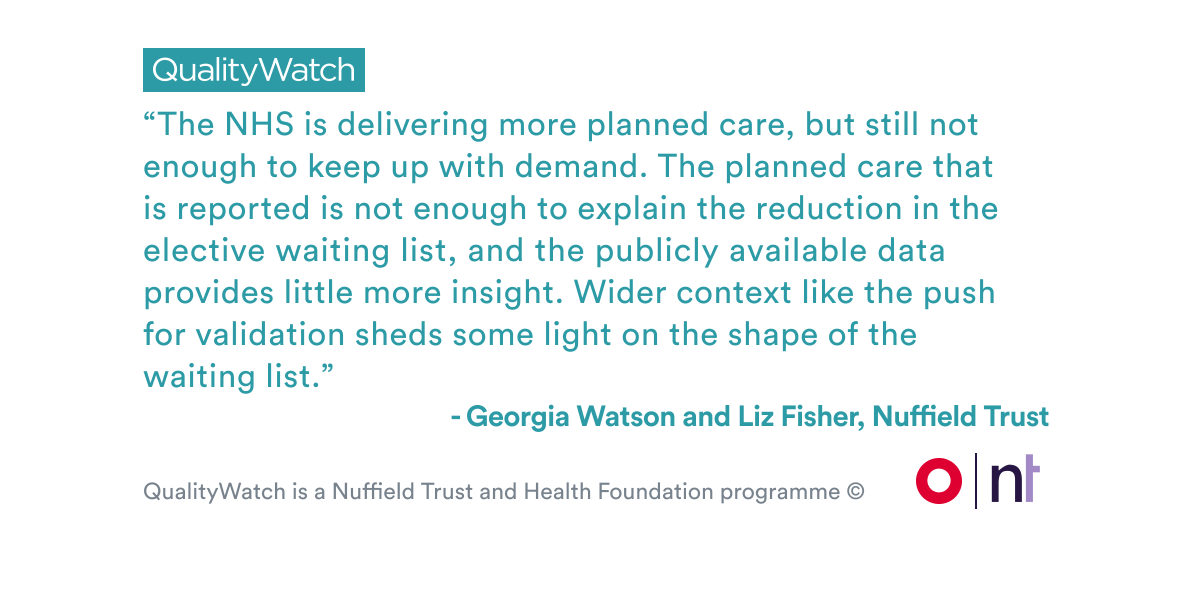Cowper’s Cut 389: An Augustine heatwave

Imagine my surprise to learn that Health But Social Care Secretary told listeners to LBC Radio that there won’t be strike action this month in the ongoing industrial dispute with the BMA Resident Doctors 2008 Pay Differential Historical Re-Enactment Society.
One-third of August being already past, this was firmly in the cadre of Things That Are Not Surprising. It is, however, positive that the two sides are still talking and not briefing explicitly against each other.
Yet.
Mr Streeting also told listeners, “I feel much more optimistic about the wider NHS workforce, about where we are on the risk of industrial action, not least because we’re working constructively together to try and find ways to deliver real improvements to the lives of NHS staff”.
Mmmmmmm. We shall see if this feeling of optimism is well-founded. Meanwhile, this blog on the impact of strikes by the Kings Fund’s director of policy Siva Anandaciva is an excellent read.
Why are we waiting?
Labour’s manifesto commitment to getting back to achieving the 18-week RTT target by the next General Election has put a waiting list-shaped target on their backs. This may prove to have been an unwise move.

“These removals are not explicitly reported in published data, so researchers have had to calculate them manually. They include removals following list validation exercises, but also a range of other factors, such as the design of the data reporting methods and the nature of software management processes.
“Factoring in these removals … the majority of the waiting list reduction was therefore not produced by increased clinical activity”.

It was unsurprising to see the shrewd Mark Cubbon, NHS England director for elective care, trying to get back ahead of the story with his comments to HSJ that “while we are seeing encouraging progress in some providers with long waits, there is more to do to bring this position back in line”.

Mr Cubbon also made it clear that the service was on course to miss the 2025-26 waiting list targets.
This candour might be unsurprising, but following the ‘denial-first’ policy of the Pritchard era, it is welcome. The first rule of Solving Problems Club is that you name and accurately diagnose the problems.
Analysis by Full Fact has also shown that the 4.6 million ‘extra appointments’ figure claimed by PM Sir Keir Starmer and Health Secretary Streeting represented a smaller uplift in activity, compared to the same period during 2023-24.
Nick Kituno’s HSJ analysis of activity during the last resident doctors’ five-day strike is also salutary; as is the latest English NHS RTT data, showing slight improvement against the main 18-week target – but that the number of long waiters remains stubbornly high and the waiting list fairly flat, at 7.4 million.
Corrections and clarifications on the problems with training
A couple of medical readers of ‘Cut’ got in touch to say that my piece in last week’s column about problems with training resident doctors missed some important points, particularly around rotation.
I try to cover things fairly and get facts right, but inevitably I don’t always: and a readership like this one will rightly let me know. Which I genuinely appreciate.
So for a more accurate and rounded picture, from people who saw these changes in real working life, their comments follow below.
Reader 1: “The disenchantment of medical students (yes, it starts that early) and resident doctors is more to do with the fact that they feel unvalued - as do many consultants - by a service that, despite all it says on the matter, manifestly doesn’t value many who work for it. They’re just seen as expendable widgets.
“Personally, I think it’s far less to do with pay – though this is the conduit and focus for the disenchantment. I think you’re right, that the demise of the firm structure has been a very important step in causing this. There were some toxic consultants – but the majority were very caring of their firm and of supporting its members. There was thereby a great sense of belonging and of mutual support. Resident doctors saw themselves as belonging to the firm; not to the organisation.
“This has been lost. It’s difficult to feel one belongs to an organisation when one is only there for a year or so and will then move on.
“Rotation is not new. Indeed, when I was training, if you’d stayed in one place you were seen as being less well trained and as a less desirable appointee, especially at consultant level. The reason for this is obvious – rotating means exposure to many different clinicians and departments, and thereby to many different ways of doing things - which makes for much broader training. Trainees can decide from a varying menu how they wish to practice.
“In the modern world however – and I do understand – the adverse effects on lifestyle are a greater consideration than was the case when I first took the Queen’s shilling.
“It was the European Working Time Directive that largely was the death-knell of the firm structure.
“There’s also a feeling of being let down by our medical leaders - including the GMC and the Colleges - who appear to fall over themselves to fall in step with the powers that be: witness the recent physician associate/assistant crisis.
“Further centralisation is not the answer. I’m surprised by Alan Milburn (well, not really). I listened to a pre-election podcast in which he was very critical of centralisation – and now seems to be in favour of doing just that.
“Your comments about Henry Marsh are interesting. Great man that he is, he’s spent his life working in a very rarified specialty in a very rarified institution. He certainly won’t have had the experiences that us mortals have had, working in smaller DGHs.
“This exemplifies another problem. Experts/super-experts are seen as being special in terms of their opinions on all manner of subjects, including those outside of their own sphere of practise. This is just not the case.
“If you want to understand the NHS, you need to look beyond London and the Big Teaching Hospitals which, being closest to the centre of power, and better funded, are more usually asked for advice and opinion.
“More than half the UK population is looked after by hospitals that can be described as small, remote, rural – approximately 75 trusts in England.
“However, we appear to have evolved along the American inverse valuation rule – the more highly specialised a clinician is, the more valuable they must be. Whereas we ought to be affording to excellent generalists – whom we need badly – the same recognition and valuation as we do to super-specialists.
Reader 2: “The reason for the demise of the firm structure was the European Working Time Directive. When you were on a firm - it was still with old-fashioned on-call rotas - be it 1 in 3, 1 in 4, etc. So the whole team would look after a ward and a consultant's patients (or sometimes a pair of consultants in big teaching hospitals), and all be on call together.
“But this was in the era of 80-hour continuous on-call weekends and 36 hour continuous weekday shifts. Once hours were restricted to 56 (and then lowered further), junior doctors had to move to full shifts (as was already the case in A&E and out-of-hours anaesthetics). This meant that they were still allocated to a particular clinical team or ward, as in the old days, but now only got to be on that ward or with that team for maybe half their time, as they were doing so much on-call, either at the acute front door or doing ward cover.
“Rotational training - moving every 4-6 months between firms and moving hospitals every year or two - was always there. But for those 4-6 months, you were very much with the one team for nearly all your time. There is less continuity now.
“There also used to be far more early career autonomy, but with very different expectations of consultants these days and the consultant workforce expansion, we now have ever-present ‘helicopter’ consultants.
“And it is the consultants (whereas in the old days it was the house officer or senior house office) who are the point of continuity and often presenting the patients to the juniors not vice versa. This lack of autonomy makes training less enjoyable - albeit services are probably safer and more efficient because of it.
“If a doctor had the misfortune to be placed with a toxic team or boss, there was no escape.
“Another thing I’d mention is that when you see modern day junior doctors saying ‘there is no training: it is just service provision’, that was ever thus: it was always learning by doing (often out of hours), but formerly with far more discretion and autonomy and exposure.
“The style of school and university teaching now, and the fact that people are taking out big loans and paying upfront for exams and portfolios, probably means that they want something far more bespoke and tailored, with the hands-on experience backed by teaching and feedback - which is a more Generation Z expectation - rather than just studying for exams.
“The GMC survey you cited utterly fails to reference how unhappy junior doctors are over role substitution and training opportunities impaired by the presence of physician associates (and ACPs), but of course the GMC are enablers of this, and so want to pretend it is not happening.”
Thanks to both of you for writing.
Recommended and required reading
The latest Office for National Statistics data on ‘Experiences of NHS healthcare services in England’ found that of the 14.1% of adults in England currently on a hospital waiting list, 43.6% rated their overall experience of waiting for their appointment as poor, with 41% dissatisfied with communication of waiting times. Satisfaction with GP interactions was higher: 73.6%) of those surveyed who contacted their GP in the last 28 days said their overall experience was positive. Over the last 12 months, a higher proportion said services had improved (19.4%) rather than deteriorated (10.7%), although the vast majority said that they had not noticed a difference (61.9%).
The Nuffield Trust’s Sarah Reed looks at what the English NHS can learn from other health systems’ experiences of delivering more care out of hospitals.
Late last month, I missed this excellent piece on NHS staff burnout, by Sharon Nash for the Kings Fund.
Depressing but necessary Guardian piece born of an RCN FOI over violence against A&E staff.
BBC Radio Four’s ‘File On Four Investigates’ looks at the NHS’s ongoing use of knee replacement implants known to be faulty.


